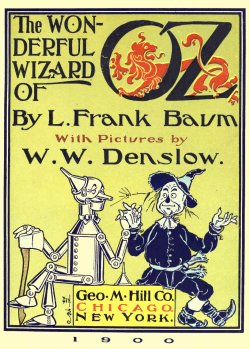“Christian Speculative Fiction” Is Not An Oxymoron
In Friday’s guest post, “Is ‘Christian Speculative Fiction’ an Oxymoron?” debut novelist Mike Duran (if I “got” him correctly 😉 ) hypothesized that a Christian’s theology may get in the way of speculating about our world — that which is seen and that which is unseen.
I had to think about the question for some time and finally decided my thoughts about the subject would be too lengthy for a comment. Hence, I’ve opted for this blog post.
My initial reaction was this: all writers are “limited” in our speculation by what we believe. Consequently, atheist Phillip Pullman (His Dark Materials) couldn’t (or wouldn’t) speculate that there is a loving, sovereign, eternal God who created the world and wants to be known by Mankind. This concept would clash with what he believes to be true.
This realization led to another important point — novelists, no matter the genre, desire to reveal the truth. The problem is, not all novelists know the truth.
Thomas Hardy (Far from the Madding Crowd, The Return of the Native, The Mayor of Casterbridge, Tess of the d’Urbervilles, Jude the Obscure), for example, wrote stories in which fate — pure happenstance — turned success into failure, hope into despair, joy into grief. Truth? Hardly. Yet I think it’s safe to say Hardy didn’t set out to write stories that were untrue in the ultimate sense. He, in fact, believed in “supernatural forces that control the universe, more through indifference or caprice than any firm will” (Wikipedia).
My point is that whatever a novelist deems as true puts natural constraints upon his writing.
For we Christians, then, our theology is the “constraint” with which we must write.
So far, you might think I made a mistake in writing the title of this post, because undoubtedly I’m sounding more like I do think Christian speculative fiction is a marriage between two incongruous concepts. In fact I’m saying “speculative fiction” is incongruous. Novelists of any strip only “speculate” within the parameters of their belief system, Christians not more so than any others.
In fact, I would venture to say that Christians have a greater opportunity to speculate than any other writer. Yes, greater.
 L. Frank Baum, author of The Wizard of Oz, created an imaginative world with a talking lion; a living, breathing scarecrow; and a similar tin man. When it came to the wizard, however, the best he could come up with was a fraud. Not a real being of power who could do miraculous things in the fight against evil. Instead, sweet Dorothy and each in her company were as good as it got. Whatever “miracle” that was to happen would come from within them. How limiting!
L. Frank Baum, author of The Wizard of Oz, created an imaginative world with a talking lion; a living, breathing scarecrow; and a similar tin man. When it came to the wizard, however, the best he could come up with was a fraud. Not a real being of power who could do miraculous things in the fight against evil. Instead, sweet Dorothy and each in her company were as good as it got. Whatever “miracle” that was to happen would come from within them. How limiting!
Christians, on the other hand, believe in an all powerful God. What can’t He do? Think of what a Christian Wizard of Oz story might have looked like. How would the wizard have intervened on Dorothy’s behalf? Or would he? How would she, a stranger, find access to the ruler of Oz? By completing a near-impossible task? By putting on glasses that turned the city into pretend emerald? I think we could do better than that.
We know the truth about how we as actual humans have access to the Throne of Grace — not by what we do but by what God did for us. If we would apply C. S. Lewis’s method of “supposal” to the world of Oz, might we not find a creative way of giving the lion courage, the scarecrow a brain, the tin man a heart, and sending Dorothy home that would be More, not less, than Baum’s humanistic reveal? What would an all powerful Wizard in Oz have done?
The only thing I can think of that God can’t do, is violate His nature. Does that mean a Christian can’t write a story in which the ruler is a liar, unkind, or selfish? Not at all. In that story, however, the ruler would not be God. A human ruler, sure, or one with a demon; or the ruler might even be a demon or a monster or an alien, maybe from a world Satan tried to create after God made this one (hmmm, has that story been written already? 😉 )
And of course the “ruler” could be a scientist or a drug lord or the CEO of a respected business. He could be a she.
The point is, the characters are important on the story level, but when it comes to the theme, they shrink.
Hence, in reading The Shack, I was much less bothered by the representation of God as a big black woman than I was about the things the book said about God’s character.
C. S. Lewis used a lion to represent God in the fantasy world he created. I know and understand that God is not an actual lion, even though the Bible calls Him a lion (and Jesus a Lamb). These are metaphoric representations. Why can’t Paul Young use a metaphoric representation of God as a big black woman, if he sees similarities? (If you’d like to know my complete thoughts about The Shack, you can find my ten-part series at A Christian Worldview of Fiction, starting with this one.)
As I see it, all the world, and all the pretend worlds we can imagine, are before us to people as our imagination allows. And we can infuse those worlds with a Being capable of coloring outside all boxes — because He made the boxes and the colors. How unlimiting for a writer. How speculative. And how Christian.







































Rebecca,
Very thought provoking. I have wrestled with this whole issue since I write about spiritual warfare. I needed to be able to depict a reality to something unseen and unknown and only touched upon in the bible. Frank Peretti did it in his book, This Present Darkness and Piercing the Darkness. However, since I am a different person, a different story emerges.
I know I make some people a little uneasy when I talk about my angels and demons and the struggle within my story. It’s almost a stigma I must wear in order to be a speculative writer. I don’t get the same welcoming warmth as a historical romance writer would. And yet evil is prevalent in our world. One only has to watch the evening news to see the effects of sin and Satan’s evil influence everywhere.
You do a great job at opening the doors to speculative writing. I had never thought of The Wizard of Oz quite this way. Great article!
Dawn
Thanks for the perspective. This resonates in my mind with your blog on deus ex machina.
[…] yesterday’s post, Becky Miller responded to Mike Duran’s guest post (“Is Christian Speculative Fiction […]
Dawn, thanks for your thoughts. Actually you made me think about something that I didn’t mention in my post. I think we have to be cautious with stories set in this world, in the same way a novelist writing historical fiction has to be careful to get the historical facts down correctly.
I think we could speculate and say, What if God made cats sentient? because it’s clear that is speculation. But I don’t think we should say, for example, What if God inspired a new Bible? That’s too close to what false teachers claim. The idea of speculation, then, gets mixed up with reality.
Also, if a story is set in this world, then I think God needs to be God as He reveals Himself in Scripture.
Definitely stories set in this world have a unique set of issues to deal with.
Becky
Shastaswin, thanks for mentioning the deus ex machina post. At first I thought you were referring to the one Stephen wrote recently, but then I dug up an older one you might be thinking about — especially in connection to the part of this post about The Wizard of Oz.
I’m glad we take the time to think about how we portray God and write truth in our speculative stories. How else can we move beyond the “tried and true,” the expected and predictable? God is More than we can think or imagine and it’s exciting to show Him in more depth.
“What would an all-powerful Wizard in Oz have done.”
This is genuinely a fabulous question in connection with the word picture, Becky. My compliments…
Thank you for this exchange. (I have also read the post by Thomson, and thank her.)
I have posted on the exchange. My posts include two things that I didn’t see in your post, or Duran’s. One was that I didn’t see a definition, or description, of Christian fiction. The other was that there are at least some works of speculative fiction that are, in my view, Christian, and have been well received by the general public. I give a couple of examples.
Thanks for your work.
Interesting thoughts in your post, Martin. I suspect both Mike and I didn’t define the term “Christian fiction” because we’ve written extensively about it on our own sites. Still, in this forum, it would have been good to include a link, at the least.
Marc, thanks for your kind affirmation. Greatly appreciated!
Becky
[…] a recent article at Speculative Faith, in response to Mike Duran’s guest blog there, I concluded with this: […]
Thanks for your post of Feb 14, where you do define, or describe, “Christian fiction.”
Happy to do so, Martin. Thanks for the nudge.
Becky
[…] the box, to soar above and beyond any limitations. I’ve even written an article here at Spec Faith describing how the Christian is the most free writer of […]
[…] addition, I suggest that the Christian is the best person to imagine. (See, for example, “’Christian Speculative Fiction’ Is Not An Oxymoron”). God has made us in His own image–which would suggest that we are, by nature of our […]